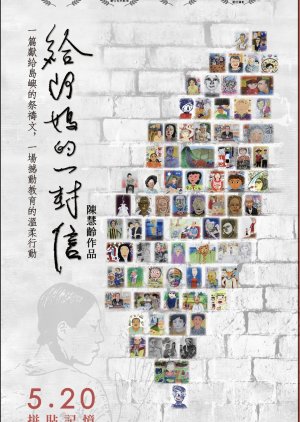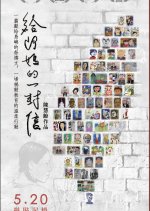"The greatest human tragedy is the loss of collective memory." - Simone Veil When French filmmaker Chen Hui Ling returned to her hometown to mourn her grandmother, she was confronted not only with the blurred memories of her family but also with the fractured history of her country. Through an art assignment for her students, she invited a number of young people to interview their grandparents and paint their portraits on the theme of family memory in a performance art project that took ten years: the assemblage of 'group portraits'. A legend of a Hakka commander who escaped death in Manchuria, a descendant of Skaro who walks along the ancient road of Along Yi and talks about his ancestors, a Paiwan "princess" with white hair who shyly remembers meeting a Japanese officer, a veteran who has been in the country for many years but still remembers his homeland, a family member of a victim who doesn't want to recapture the pain of losing his relatives, a letter of death that was never sent, and a letter buried in the wilderness that was once written by an intellectual to escape the White Terror. The vault where the intellectuals had imprisoned themselves for 18 years to escape the White Terror. Listen to the new generation in Taiwan as they explain the migratory routes of their various ethnic groups, all of which eventually meet on this island. The process of listening to each other connects fragments of memory from different and even opposing positions until a group portrait is constructed. Like a free whale rising from the surface in the fog: a pair of gleaming eyes, a face, many different faces, our faces. (Source: TaiwanCinema) Edit Translation
- English
- 中文(台灣)
- magyar / magyar nyelv
- עברית / עִבְרִית
- Native Title: 給阿媽的一封信
- Also Known As: A Letter to A'ma , Gei A Ma De Yi Feng Xin , 给阿妈的一封信
- Genres: Documentary








